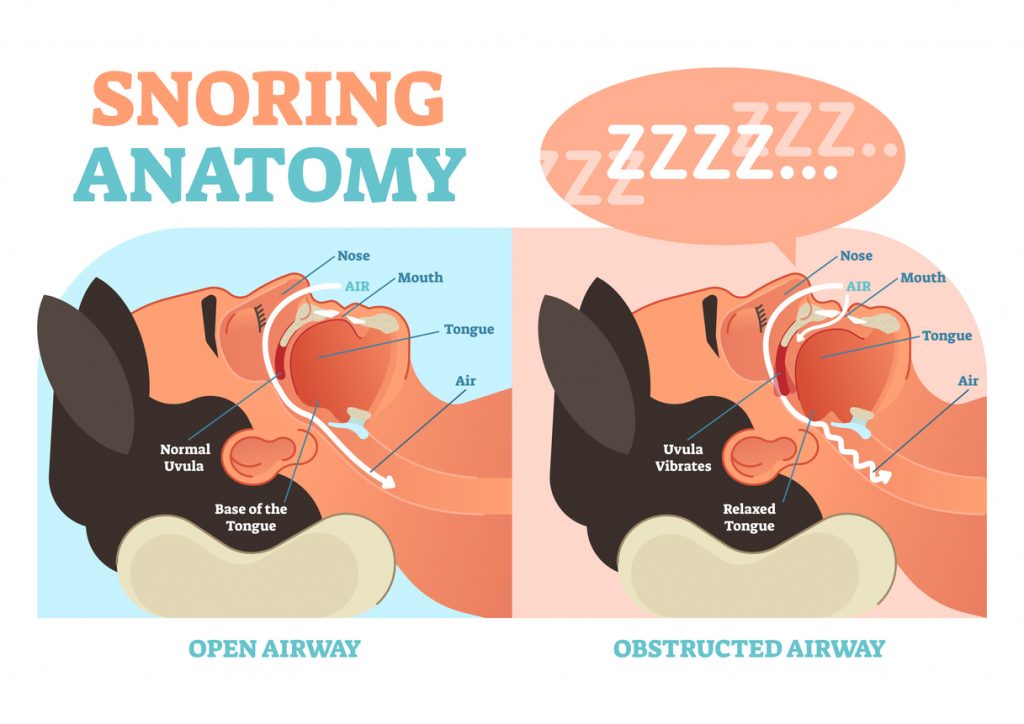
‘Hark, How Hard he Fetches Breath’ – Shakespeare, King Henry IV Pt I
Current research on sleep disorders focuses on the effects of poor rest on dementia and neurological deficiency, cognitive ability in adults and children still developing their full brain potential, recovery from illness and brain injury, and medical conditions like sleep apnoea and excessive snoring in adults. The Sleep Health Foundation of Australian is promoting Sleep Awareness Week this August to help people understand the importance of sufficient repairing rest each night – and the necessity to have the right sleeping environment to achieve this.
What causes snoring? It’s the vibrations in your throat made by relaxed airways and your pharynx, (the membrane-lined cavity behind your nose and mouth) while you are asleep that cause the phenomenon of snoring. If you suffer from reduced clearance in your throat or nose or have a blocked nose, this will increase the chance of you snoring. There are certain risk factors that increase a person’s propensity to snore – being overweight, being male, those who sleep on their backs and have excessive alcohol intake, or women who are pregnant are all at greater risk of this condition. Children can also snore if they have enlarged tonsils or adenoids, which can be helped by surgical intervention.
What can I do? Those who snore always fall asleep leaving their ‘fog horn’ sounds for their loved ones or the rest of the family to endure. It won’t be long before you know about it though! If snoring is a problem for you, there are things you can do to reduce its impact or see if it is part of a larger problem.

- Try reducing your alcohol, exercise and caffeine intake for a few hours before bedtime – all these elements aggravate excessive snoring
- Keep your weight in check – seek professional advise if your approach or diet/food plan is not working
- Allergies and medical conditions like sleep apnoea can aggravate snoring – see your doctor for treatment options
- If you are an exclusive back-sleeper, start your daily rest on your side or stomach or prop up your upper chest area with pillow support
- If your child snores, seek medical advise on whether their tonsils or adenoids are enlarged
Medical intervention is available for excessive snoring in adults where an underlying condition may be present. See your health practitioner to determine if a structural blockage or narrowing occurs in your nose or throat, which can contribute fitful rest and snoring. Rule out medical conditions like sleep apnoea as a factor and investigate appropriate herbal or enzyme treatments for allergies causing blocked noses and snoring at night. See the Sleep Foundation’s Fact Sheet for more information: https://www.sleephealthfoundation.org.au/snoring.html
If you sleep well, you live well – snoring doesn’t have to play a part in taking away your rest!
‘Invest in Better Sleep’ #SAW2019





